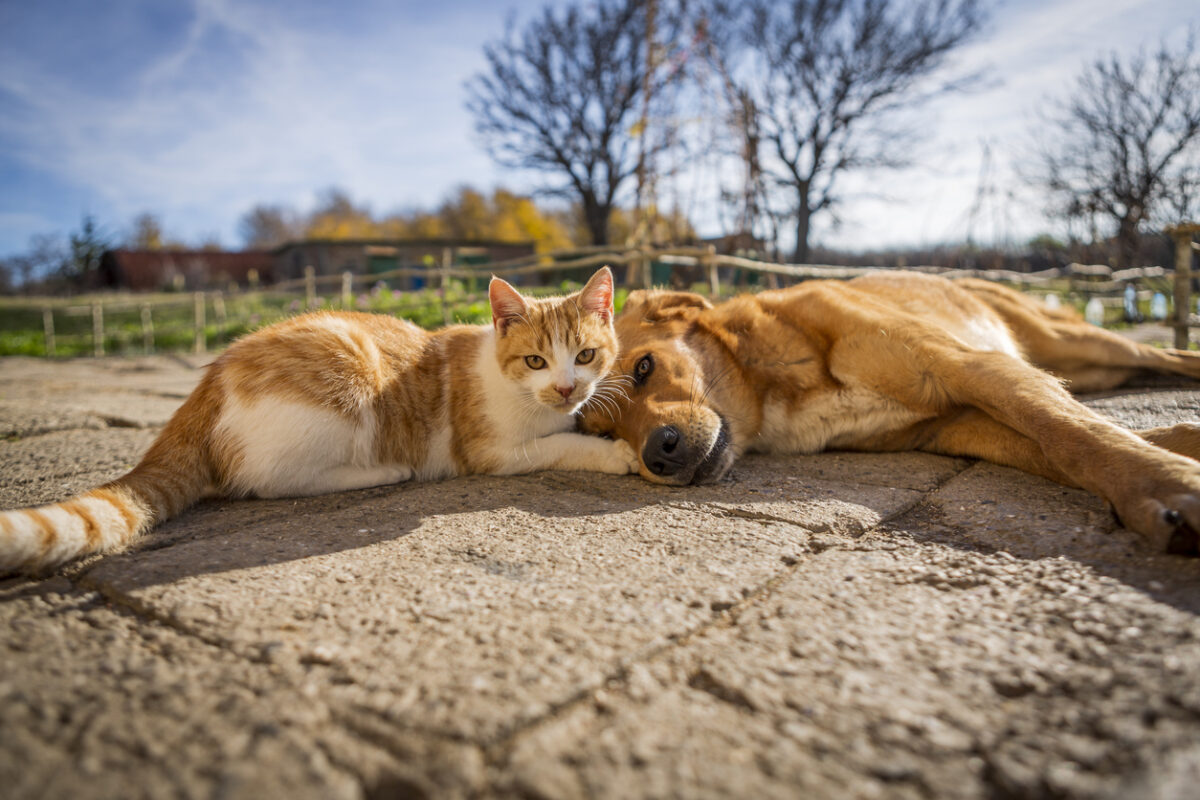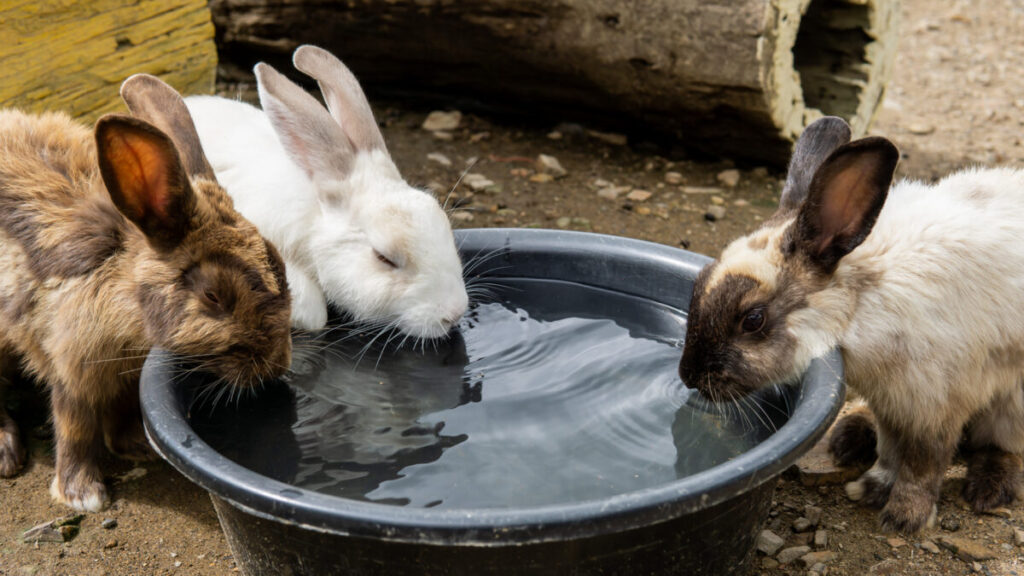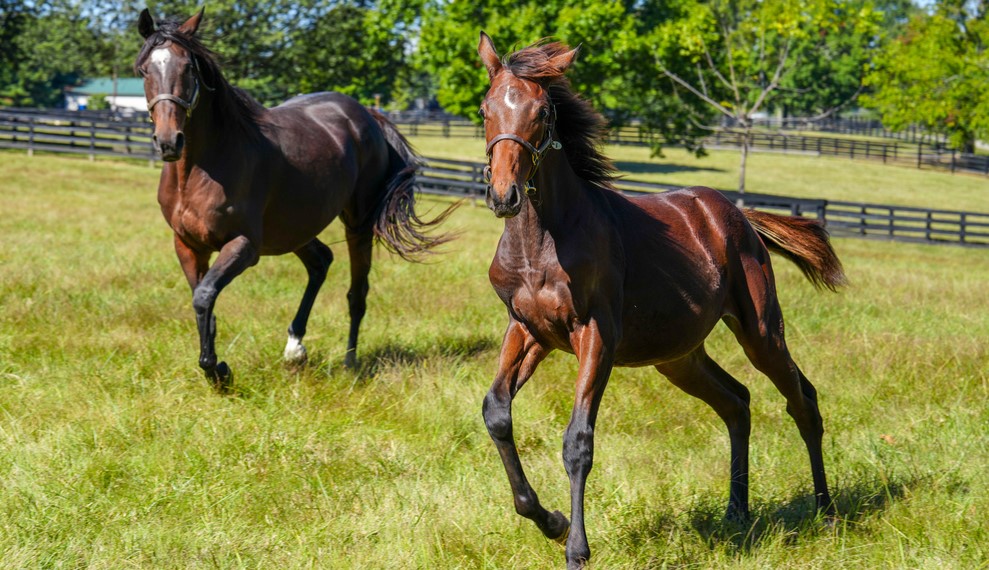Vaccinating your pets or livestock is critical to keeping them healthy and protected from disease. It is essential to stay informed about the vaccinations they need. August is National Pet Immunizations Awareness Month. Hammond Veterinary Hospital dedicates this month to educating pet and livestock owners on the importance of vaccinations. We aim to empower you with knowledge about core and non-core domestic animal vaccines for dogs, cats, exotic pets, horses, and livestock so you can protect your beloved animals from preventable diseases.
Core and Non-Core Domestic Animal Vaccinations
Core vaccines are vital for the animal based on exposure risk, disease severity, or transmissibility to humans. They protect animals from diseases most common in their area.
Non-core vaccinations (also referred to as elective or lifestyle vaccines) are for individual animals with unique needs. Dr. Hammond will consider your animal’s risk of various preventable diseases to customize a vaccination program for optimal protection. He will ask about your animal’s lifestyle, including expected travel or possible contact with other animals, to assess their risk of exposure to certain diseases. Here are some non-core vaccines for our area:
Dogs: Core Vaccines
- Canine Parvovirus: Protects against a highly contagious and often fatal virus.
- Canine Distemper: Guards against a severe viral disease affecting the respiratory, gastrointestinal, and nervous systems.
- Canine Adenovirus (Hepatitis): Protects against viral hepatitis and other diseases.
- Rabies: Protects against the fatal rabies virus (required by law).
Dogs: Non-Core Vaccines
- Bordetella bronchiseptica (Kennel Cough): This vaccine is recommended for dogs that are frequently in contact with other dogs, such as those that visit dog parks, boarding facilities, or grooming salons.
- Leptospirosis: Suggested for dogs that are at higher risk due to exposure to wildlife, standing water, or certain environments where leptospirosis bacteria are present.
- Lyme Disease: Recommended for dogs that are at risk due to living in or traveling to areas with a high incidence of Lyme disease and frequent tick exposure.
- Canine Influenza: Suggested for dogs that are at risk of exposure in areas where canine influenza is prevalent or if they visit places with many other dogs.
Cats: Core Vaccines

- Feline Calicivirus: Helps protect against a common respiratory infection.
- Feline Herpesvirus (Rhinotracheitis): Guards against another significant respiratory pathogen.
- Feline Panleukopenia: Protects against a severe and often fatal disease.
- Rabies: Protects against rabies (required by law).
Cats: Non-Core Vaccines
- Feline Leukemia Virus (FeLV): This vaccine is recommended for cats that go outdoors or live in households with other FeLV-positive cats. It is also essential for kittens.
- Feline Immunodeficiency Virus (FIV): This is considered for cats at higher risk of exposure, such as those that go outdoors or are exposed to other FIV-positive cats.
- Chlamydia Psittaci: This vaccine may be recommended for cats at risk of contracting this bacterial infection, which can cause respiratory issues.
Ferrets: Core Vaccines

- Rabies: Protects against rabies (required by law).
Ferrets: Non-Core Vaccines
- Canine Distemper: Although not a core vaccine, it is highly recommended for ferrets, as they are susceptible to canine distemper, which is often fatal in ferrets.
Rabbits: Core Vaccine
Core vaccines for rabbits typically include:
Rabbit Hemorrhagic Disease Virus (RHDV) Vaccine: Protects against Rabbit Hemorrhagic Disease (RHD), a highly contagious and often fatal viral disease.
Rabbits Non-Core Vaccines
Rabbit Hemorrhagic Disease Virus Type 2 (RHDV2) Vaccine: Protects against a variant of Rabbit Hemorrhagic Disease, which can be particularly severe and widespread.
Horses: Core Vaccines
- Tetanus: Essential for preventing the potentially fatal disease caused by bacteria.
- Eastern and Western Equine Encephalomyelitis (EEE/WEE): Protects against viral diseases transmitted by mosquitoes.
- West Nile Virus: Guards against a severe mosquito-borne illness.
- Rabies: Recommended to protect against the fatal rabies virus.
Horses: Non-Core Vaccines
- Strangles (Streptococcus equi): This is recommended for horses that are at risk of exposure, such as those in high-density environments like stables or shows.
- Equine Herpesvirus (EHV): Often recommended for horses that travel frequently or are in contact with many other horses. There are different types of EHV vaccines, including those for respiratory forms and those for EHV-1 associated with abortion and neurologic disease.
- Equine Influenza: We suggest this vaccine for horses that are in high-risk environments, such as those competing or traveling frequently.
Livestock (Such As Cattle And Sheep):Core Vaccines
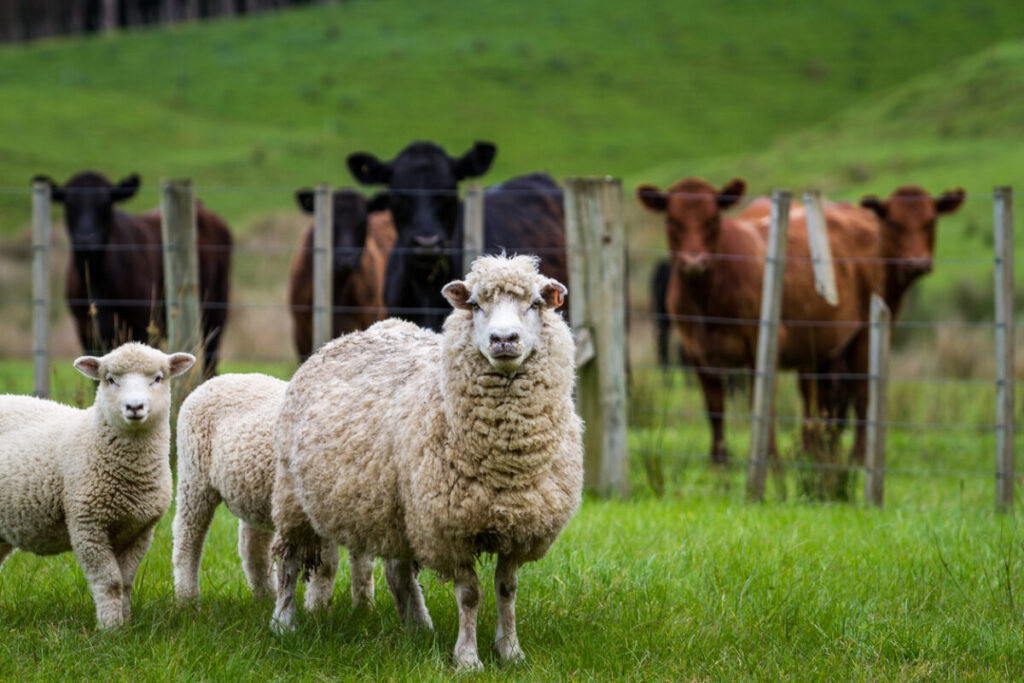
- Tetanus: Important for preventing tetanus infections.
- Brucellosis (for cattle): Required in some areas to prevent brucellosis, a bacterial infection.
- Rabies (in certain cases): Recommended if there is a known risk of exposure.
Livestock (Such As Cattle And Sheep):Core Vaccines
- Brucellosis (for cattle): Recommended in areas where brucellosis is a concern or if required by local regulations. This vaccine helps prevent the disease, which can cause reproductive issues in cattle.
- Leptospirosis: Often recommended for cattle and other livestock in areas where leptospirosis is a risk. It helps protect against bacterial infection that can affect reproductive health and overall well-being.
- Pasteurella: For cattle and sheep, this vaccine helps protect against pasteurellosis, which can cause respiratory issues.
- Clostridial Diseases: Various vaccines are available for clostridial diseases (e.g., Blackleg, Tetanus) and are recommended based on the risk factors present in the area.
Poultry Core Vaccines
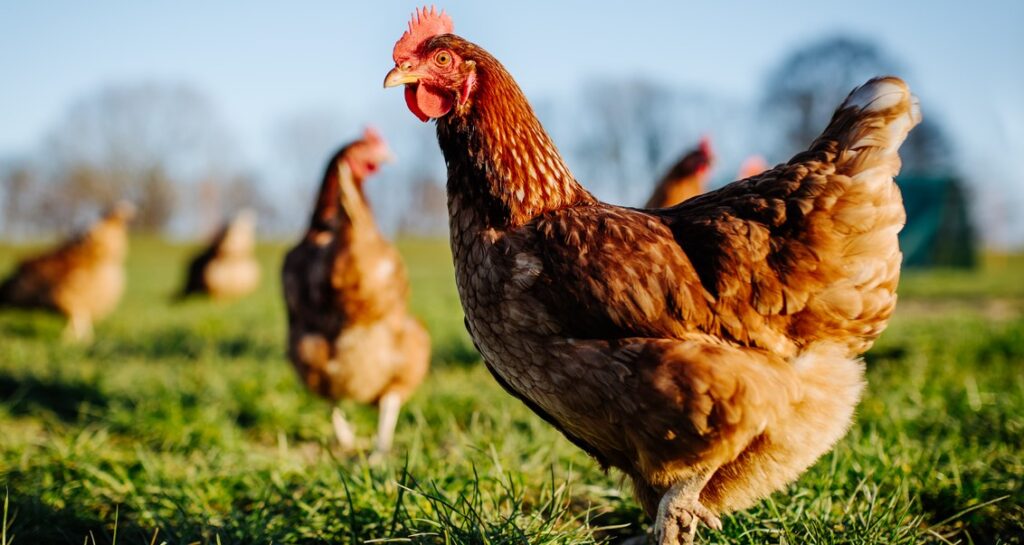
- Marek’s Disease Vaccine: Protects against Marek’s disease, which causes tumors and paralysis.
- Newcastle Disease Vaccine: Guards against Newcastle disease, a highly contagious viral infection affecting the respiratory and nervous systems.
- Infectious Bronchitis Vaccine: Prevents infectious bronchitis, which impacts the respiratory tract.
- Infectious Bursal Disease (Gumboro) Vaccine: Protects against infectious bursal disease, which compromises the immune system of young chickens.
- Avian Encephalomyelitis Vaccine: Prevents avian encephalomyelitis, affecting the nervous system of young birds.
Poultry Non-Core Vaccines
Fowl Pox Vaccine: Protects against fowl pox, a viral disease-causing skin lesions and respiratory issues.
- Laryngotracheitis Vaccine: Guards against infectious laryngotracheitis, a respiratory disease.
- Mycoplasma Gallisepticum Vaccine: Prevents infections caused by Mycoplasma gallisepticum, leading to respiratory issues.
- Salmonella Vaccine: Protects against salmonella infections, which can affect both chickens and humans.
- E. coli Vaccine: Prevents infections caused by E. coli, which can lead to colibacillosis, a bacterial disease.
- Coryza Vaccine: Guards against infectious coryza, a respiratory disease.
- Avian Encephalomyelitis Vaccine: Used in flocks with a history or risk of this disease.
- Chicken Anemia Virus Vaccine: Protects against chicken anemia virus, which affects young chickens and can lead to immunosuppression.
Vaccination requirements vary based on local regulations, environmental risks, and specific health needs. Regular consultations with Dr. Jeff Hammond are vital to maintaining optimal vaccination schedules for domestic animals. If you own a pet or animal not mentioned in this blog, please reach out to us. We will gladly answer your questions or direct you to the appropriate resources.
Understanding Oklahoma Rabies Immunizations Laws
Domestic Dogs, Cats, And Ferrets
In Oklahoma, owners of domestic dogs, cats, and ferrets must ensure their pets are vaccinated against rabies by the age of four months and maintain regular vaccinations as specified by the vaccine label or local ordinances. Veterinarians administering these vaccinations must provide a certificate including the animal’s identification details. Only a licensed veterinarian’s records are valid proof of vaccination for legal requirements. For details see: Oklahoma State Department of Health Welcome to Oklahoma’s Official Web Site.
Horses And Livestock
In Oklahoma, the laws regarding rabies vaccinations for horses and livestock are generally as follows:
Horses: State law does not require rabies vaccination for horses. However, horses at risk for rabies, especially if exposed to wildlife, should receive the rabies vaccination. Vaccinating horses helps prevent the spread of the disease and protects both the animals and people.
Livestock: Rabies vaccination requirements for livestock, such as cattle and sheep, are also not mandated by state law. However, like horses, livestock at risk of exposure to rabies, particularly in areas with known rabies cases, should be vaccinated.
In both cases, owners of horses or livestock should consult with Dr. Jeff Hammond to determine the appropriate vaccination protocols based on their specific circumstances and risk factors.
Ensuring Optimal Health: The Importance of Regular Vaccinations for Your Pets and Livestock
In summary, understanding and implementing both core and non-core vaccinations is essential for the health and well-being of your pets and livestock. Vaccinations serve as a proactive measure to prevent serious and often life-threatening diseases, ensuring a healthier and happier life for your animals. As August marks National Pet Immunizations Awareness Month, it’s the perfect time to review your animals’ vaccination schedules and consult with Dr. Jeff Hammond to address any specific needs they may have. Schedule an appointment today to discuss your animal’s vaccination needs and ensure they receive the protection they deserve.
Your Caring Team
Hammond Veterinary Hospital

